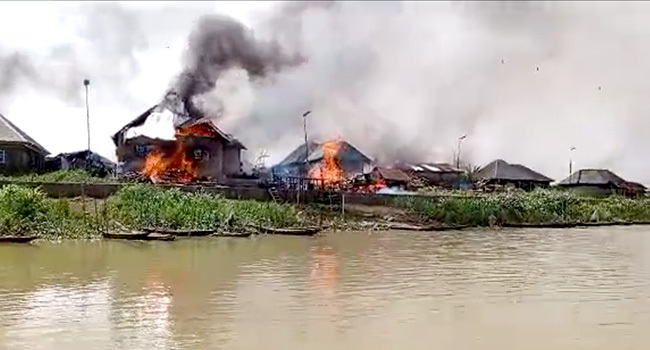
In the wake of recent tragic incidents involving the loss of Nigerian soldiers’ lives, a glaring discrepancy in reactions has come to light, shedding a spotlight on the apparent hypocrisy of one Dipo Awojide, a commentator on social and political matters.
On various occasions, Awojide‘s responses to similar tragedies in different regions of Nigeria have raised eyebrows, leading many to question the consistency of his stance. The latest incidents, occurring in Delta State and Niger State respectively, have brought this disparity sharply into focus.
Firstly, in June 30, 2022, a distressing ambush on Nigerian soldiers responding to an attack on a mining village in Niger State resulted in the loss of 48 lives, including 34 soldiers, 8 policemen, and 6 civilians.
In response, Awojide’s comment was notably solemn, expressing condolences and mourning the loss of lives. His words, “May the souls of the soldiers and policemen killed in Shiroro, Niger State rest in peace. Such a sad, sad news,” seemed fitting for the somber occasion.
Fast forward to August 17, 2023, when another devastating blow struck the Nigerian military as 36 officers fell in Niger State. The Defence Headquarters revealed this harrowing toll, alongside the tragic crash of an evacuation helicopter. However, Awojide’s commentary on this event was conspicuously absent from the records.
The inconsistency in Awojide’s reactions became more apparent in light of the events of March 14, 2024, when Nigerian soldiers met their demise in Delta State. In this instance, Awojide’s condolence call to “Rest In Peace” were hasty and thus mistakenly addressed to the “families of the fallen servicemen” rather than the fallen servicemen themselves. His words, “Condolences to the men and officers of the Nigerian army. May the families of our fallen servicemen rest in peace. This will not end well. I wish the communities involved what they wish themselves,” struck a note with many observers.
The incident in Delta State saw soldiers on a peacekeeping mission caught in the crossfire of a longstanding land dispute between two communities. Despite the clear criminal actions of those responsible for the ambush, Awojide’s emphasis on the communities themselves drew criticism. Many argued that such a stance equated the entire community with the perpetrators, implying collective guilt and calling for collective reprisal on the community rather than the perpetrators themselves.
The discrepancy in Awojide’s responses has led many to question his motivations and underlying biases. Some have accused him of double standards, suggesting that his leniency towards certain regions betrays a selective outrage that undermines the unity of the nation.









Leave a Reply